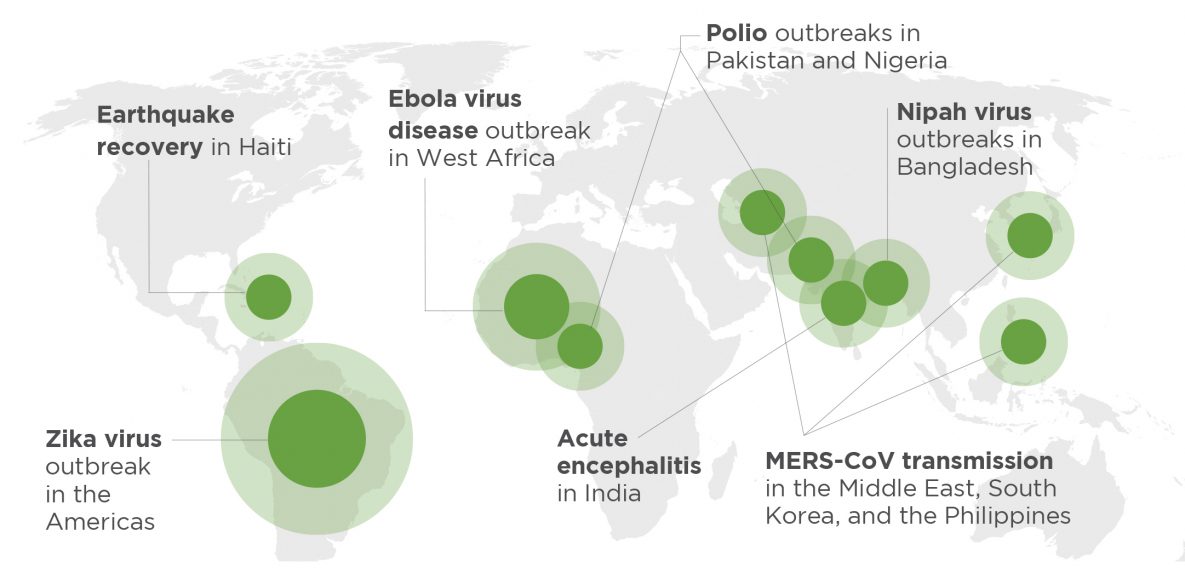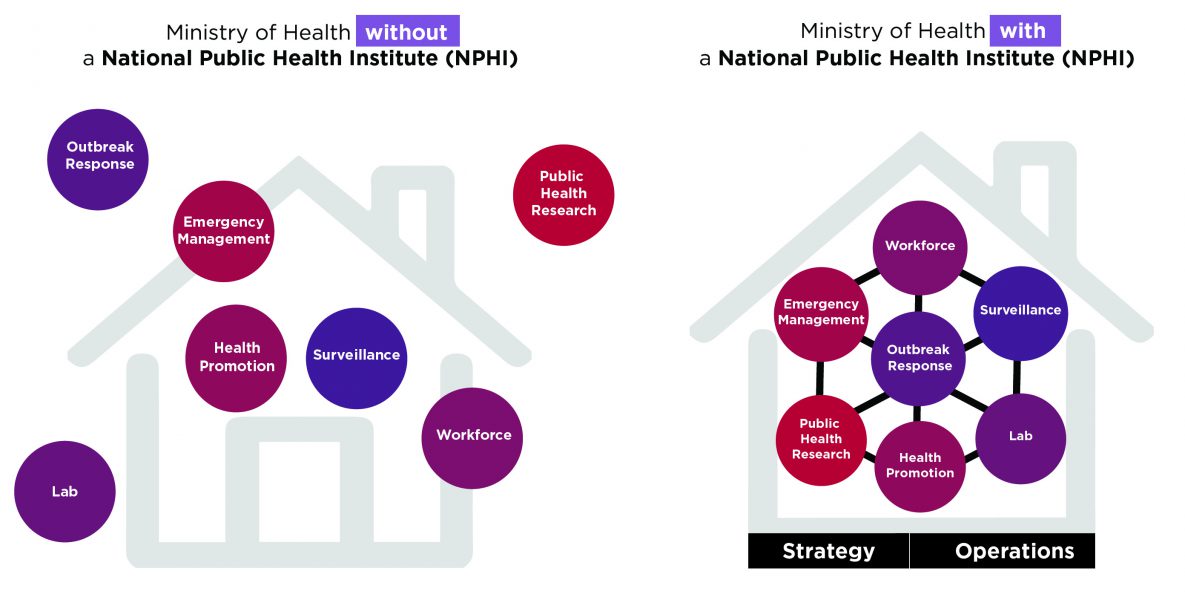CDC’s Sustainable Investment in Global Health Security
As outlined in the United States Government Global Health Security Strategy 2019, the United States is working to ensure that every partner country has a plan to achieve self-reliance in the critical area of health security. Through programs like the Field Epidemiology Training Program (FETP), National Public Health Institutes (NPHIs), and others, CDC is achieving sustainable results in support of global health security.
Training Disease Detectives: Field Epidemiology Training Program
For more than three decades, CDC has worked with ministries of health and other partners around the world to build local capacities and strengthen national public health workforce through FETP. FETP trains a global workforce of disease detectives to be “boots on the ground,” helping track, contain, and eliminate outbreaks before they become epidemics.

Since 1980, FETP graduates in over 80 countries have responded to some of the world’s most urgent public health emergencies including COVID-19; Ebola in West Africa and DRC; MERS-CoV in the Middle East, South Korea and the Philippines; polio in Pakistan and Nigeria; Nipah virus in Bangladesh; acute encephalitis in India; and earthquake recovery in Haiti. With more trained disease detectives, countries can take even greater ownership of future outbreak responses.
From 2014-2019, through CDC’s investment over twice as many FETP graduates have completed the CDC-run program per year as were trained prior to the implementation of programs supporting progress toward the GHSA 2024 target.
Giving Health Security a “Home”: National Public Health Institutes
National Public Health Institutes (NPHIs) are integral to CDC’s mission. NPHIs serve as the nexus of a country’s public health functions and play a pivotal role in a country’s ability to address potential health threats. They are the “home” for a country’s public health activities. Creating a public health institute helps countries more effectively collect and use data, as well as implement and monitor science-based programs.

NPHIs are a way to sustain CDC’s investment in global health security, by creating a permanent institution for the implementation of public health coordination. This dedicated public health foundation helps countries build and strengthen public health competencies and achieve compliance with the International Health Regulations (IHR 2005).
CDC’s support to more than 30 countries has ranged from technical assistance from abroad, to more intensive, hands-on and on-the-ground technical assistance. NPHIs help countries to more effectively prevent, detect, and respond to public health threats that can cost lives, cause political and economic instability, and spread to neighboring countries.
[1] Most recent numbers show that over 4,400 people were trained in all FETP programs under GHSA with over 16,000 trained since 1980. With this information, the rate of training was (on average) 340 people/year before GHSA compared with 880/year with GHSA.
CDC’s Sustainable Investment in Global Health Security
